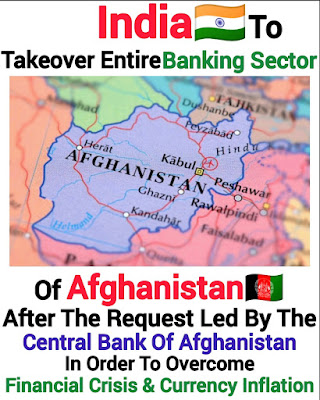India🇮🇳 to takeover entire afghanistan central banking sector in order to overcome economic crisis
The head of the central bank, Abdul Qadir Idris, recently met with Bharat Kumar, head of the Indian technical team, to discuss the economic situation, banking issues and joint cooperation.
Idris said the bank is committed to good, and improved banking relations with all countries within the framework of laws and that DAB wants to standardize the banking system across the country and develop the sector.
General manager of DAB, Siddiqullah Khalid, meanwhile stressed the need for continued cooperation between Afghanistan and India in the banking sector and said that joint cooperation regarding technical support will contribute to the growth and development of the banking system.
For his part, Bharat Kumar, the head of India’s technical mission in Afghanistan, assured the DAB officials that India will continue to cooperate and provide technical support to Afghanistan’s banking sector.DAB's general manager Siddiqullah Khalid stressed the need for continuous cooperation between Afghanistan and India in the banking sector and said that technical cooperation would strengthen Afghanistan's banking system.
Afghanistan's banking system is reeling under crisis following embezzlement and freeze of funds. DAB has been barred from the international banking system, financial community and other countries' domestic banks after the Taliban's takeover last year. This has barred DAB's access to nearly US$9 billion of foreign exchange reserves.
Afghanistan's economy contracted by about 20% in 2021, according to the World Bank's new Afghanistan Development Update, which stated the economy was adjusting to a "new normal" following the Taliban takeover in August 2021.
The World Bank report released a few weeks ago pointed to a sharp decline in public spending, lower household incomes, and reduced consumption causing a fall in aggregate demand. It also highlighted that disruptions in the payment system and supply constraints further hampered private sector activities, initially forcing many businesses to close or scale down their operations.
"Isolation from the international economy is a binding constraint to sustained stabilisation. The loss of correspondent banking relationships has significantly impacted international payments, leaving both private firms and aid organisations reliant on cash shipments and informal, unregulated, and opaque payment systems for domestic transactions," the report added.
The World Bank report concluded that Afghanistan was a much smaller economy now.



Comments
Post a Comment